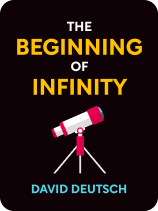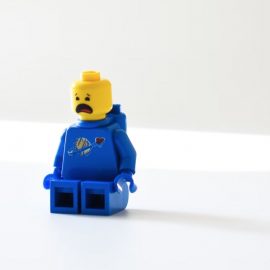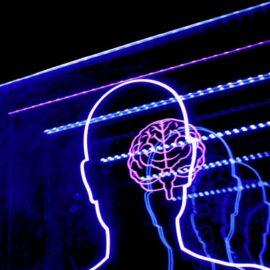

This article is an excerpt from the Shortform book guide to "The Beginning of Infinity" by David Deutsch. Shortform has the world's best summaries and analyses of books you should be reading.
Like this article? Sign up for a free trial here .
What is David Deutsch’s book The Beginning of Infinity about? What are the main takeaways of the book?
In The Beginning of Infinity, David Deutsch makes a counterargument to the belief that there is a finite amount of knowledge in the universe. Deutsch rejects the idea that humanity will someday know everything there is to know.
Read below for a brief overview of The Beginning of Infinity by David Deutsch.
The Beginning of Infinity by David Deutsch
In The Beginning of Infinity, David Deutsch rejects the idea of finite knowledge as both wrong and harmful. He believes it leads to complacency at best (there’s no need to learn because we already know everything), and pessimism at worst (we can’t advance any further; this is as good as civilization gets). Deutsch argues instead that there’s no limit to knowledge.
His reasoning is that people actively create knowledge through questions, studies, and calculations, rather than merely “finding” it by experiencing the world around them. Furthermore, Deutsch believes that because there’s no limit to how much knowledge we can create, there’s no limit to how much we can improve the world.
What Is Infinity?
Before we can understand infinite knowledge, we must first comprehend the idea of infinity. Infinity is a hard concept to grasp logically—in fact, Deutsch believes that the human mind has a natural aversion to it. Many people find it easier to think of infinity as some arbitrarily large number, but that’s a poor approximation. Instead, we can illustrate the concept of infinity with a simple thought experiment:
Imagine a person standing in an endless hallway. He walks an endless distance down that hallway. Once he’s done so, there’s still an endless distance ahead of him. He repeats this process countless times, but there is still an immeasurable distance between him and the end of the hallway. This is why Deutsch says, no matter how much knowledge we create, we’ll never know everything—in other words, no matter how far we travel, we’ll never reach the end of the hallway.
It’s also why imagining infinity as a really big number doesn’t work: Infinity doesn’t obey the same rules as finite numbers do. Instead, it may help to picture infinity as an unreachable destination; no matter how long we travel, we never get closer to it.
Different Schools of Thought
Empiricism is the belief that all knowledge comes from observation and extrapolation. A related philosophy, Positivism, says that the only true knowledge is scientific, and all scientific knowledge can be proven or verified through experimentation. In other words, Positivism argues that knowledge doesn’t have to originate with experience, but it must be confirmed by it.
Deutsch rejects both of these philosophies. He says that it’s impossible to gain true knowledge just from observation because we also have to interpret whatever we observe. In Deutsch’s definition, “true” knowledge is free from subjectivity, but observation is run through the filter of our past experiences, beliefs, and assumptions. Therefore, observation is not a reliable way to learn new information.
Instead, Deutsch argues that knowledge comes from conjecture and testing—in other words, we come up with new ideas based on what we already know, then experiment to see if those ideas hold up under scrutiny. Note that this differs from Positivism because much of what we know can’t be directly observed or experienced. For example, people believed that the sun rotated around the Earth based on what they saw and felt: The Earth seemed to be holding still while the sun, stars, and other planets moved around it. However, careful observations and mathematical calculations eventually proved that theory wrong.
Learning Mimics Evolution
Interestingly, although people create knowledge intentionally while evolution happens naturally, Deutsch says that the two processes have several things in common:
- Successful ideas and successful genes both reproduce, by definition.
- Successful ideas and successful genes both emerge from fierce competition, while their unsuccessful competitors die off.
- Good ideas and good evolutionary adaptations are both hard to change without ruining them.
- Knowledge and evolution both create “good enough” solutions. In other words, neither knowledge nor biology can ever be perfect. Instead, we have adaptations and theories that function in the current environment, and that may not survive when the environment changes.
All Knowledge Is Significant
Just as evolution involves competition between various biological adaptations, knowledge creation involves competition between different ideas and ways of thinking. Deutsch discusses two such schools of thought—reductionism and holism—to point out the fatal flaws in each:
1) Reductionism means discussing a phenomenon in terms of each individual part that composes it—in other words, it focuses on the smallest and most fundamental levels possible. For example, a strict reductionist might try to understand a rainstorm by calculating the behavior of each individual water molecule (an impossible task).
2) Holism is the opposite: It’s the belief that understanding a small piece of something is useless except in terms of what it can tell you about the whole. For example, a strict holist wouldn’t be interested in learning about one type of tree, except in terms of how that species contributes to the forest it’s in.
Deutsch talks about these two opposite extremes to make the point that knowledge can’t be ranked. In other words, detailed knowledge of the parts isn’t “better” than broad knowledge of the whole, or vice versa. Any type of knowledge is valuable. And perhaps even more importantly, any type of knowledge could turn out to be the basis for further discoveries.
Conclusion: The Case for Optimism
Finally, David Deutsch’s final argument in The Beginning of Infinity is that the potential to create infinite knowledge is grounds for infinite optimism about the future.
First of all, there have been—and continue to be—many pessimistic predictions about the future. For example, there have been numerous projections about how many human beings Earth can support, some of which estimated under a billion people; clearly, we’ve far surpassed those predictions. Today, many scientists predict that climate change will devastate much of the world. But there’s hope that we can overturn those predictions as well.
Such predictions were—and are—based on current knowledge. We’ve exceeded expectations many times before, and that’s because there’s no way of knowing what we’ll know in the future. Therefore, Deutsch rejects such pessimism and instead offers a knowledge-based argument for embracing optimism.
First, he starts with the assumption that knowledge alleviates suffering. Because we develop new knowledge to answer questions and solve problems, every bit of knowledge we acquire reduces suffering in the world by a tiny bit. Second, he reiterates that knowledge is infinite. In short: There’s no limit to what we can learn, and therefore there’s no limit to how much we can reduce suffering in the world.

———End of Preview———
Like what you just read? Read the rest of the world's best book summary and analysis of David Deutsch's "The Beginning of Infinity" at Shortform .
Here's what you'll find in our full The Beginning of Infinity summary :
- That there is an infinite amount of knowledge in the universe
- Why humanity must never stop learning
- How new knowledge changes civilization for the better






